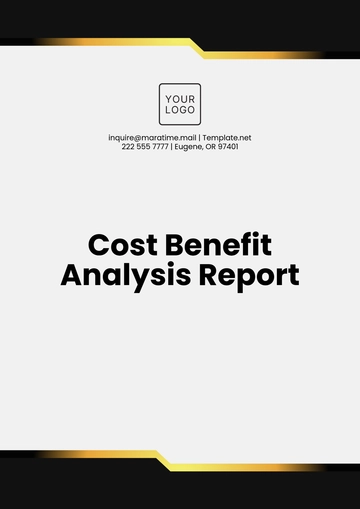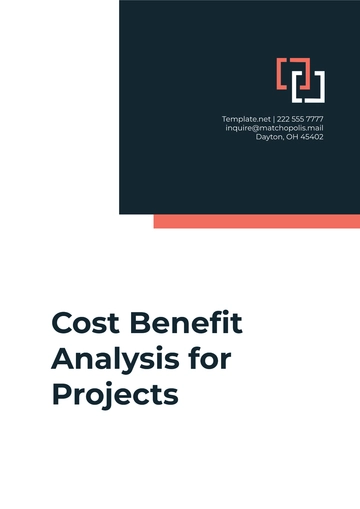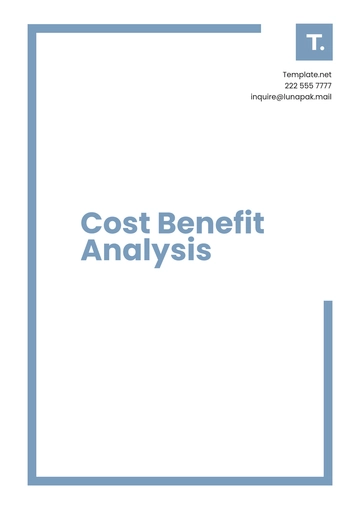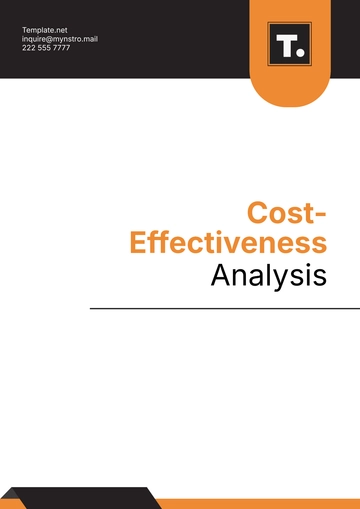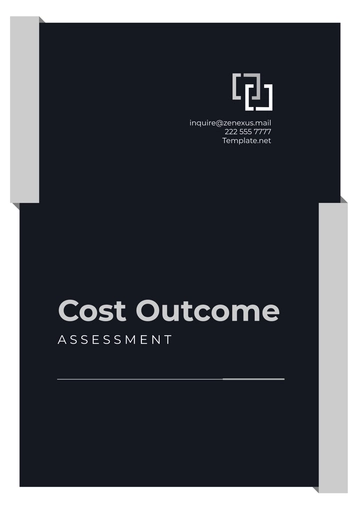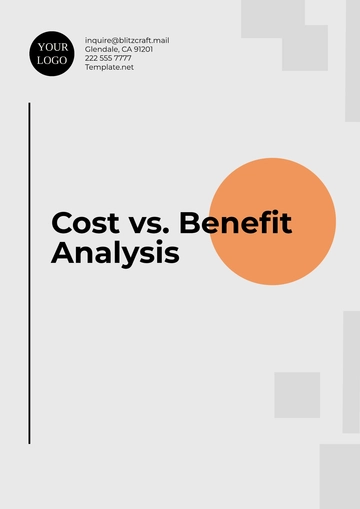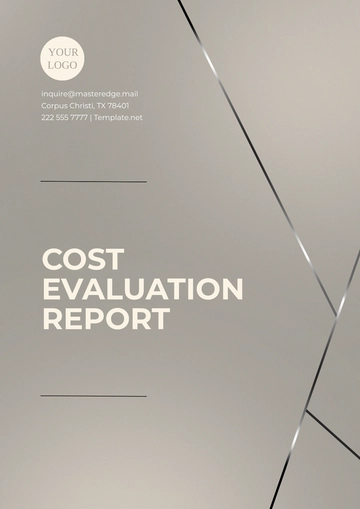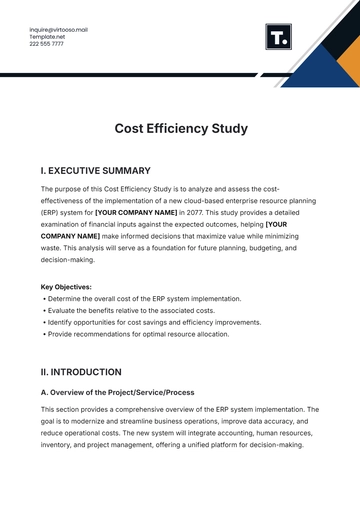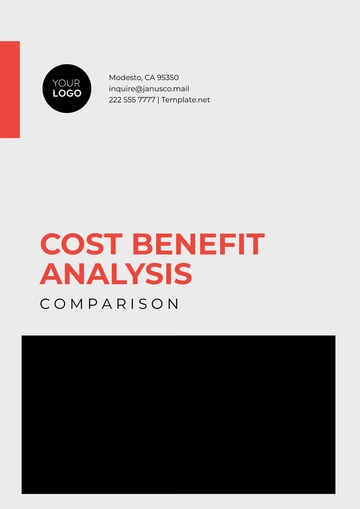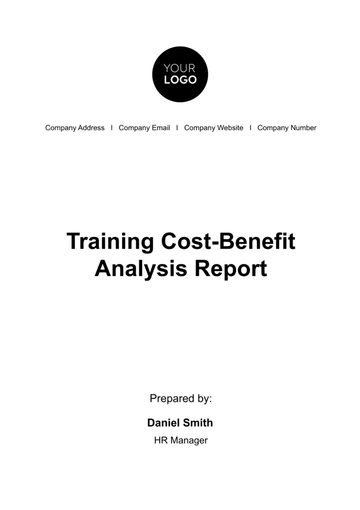Free Accounting Depreciation Impact Analysis
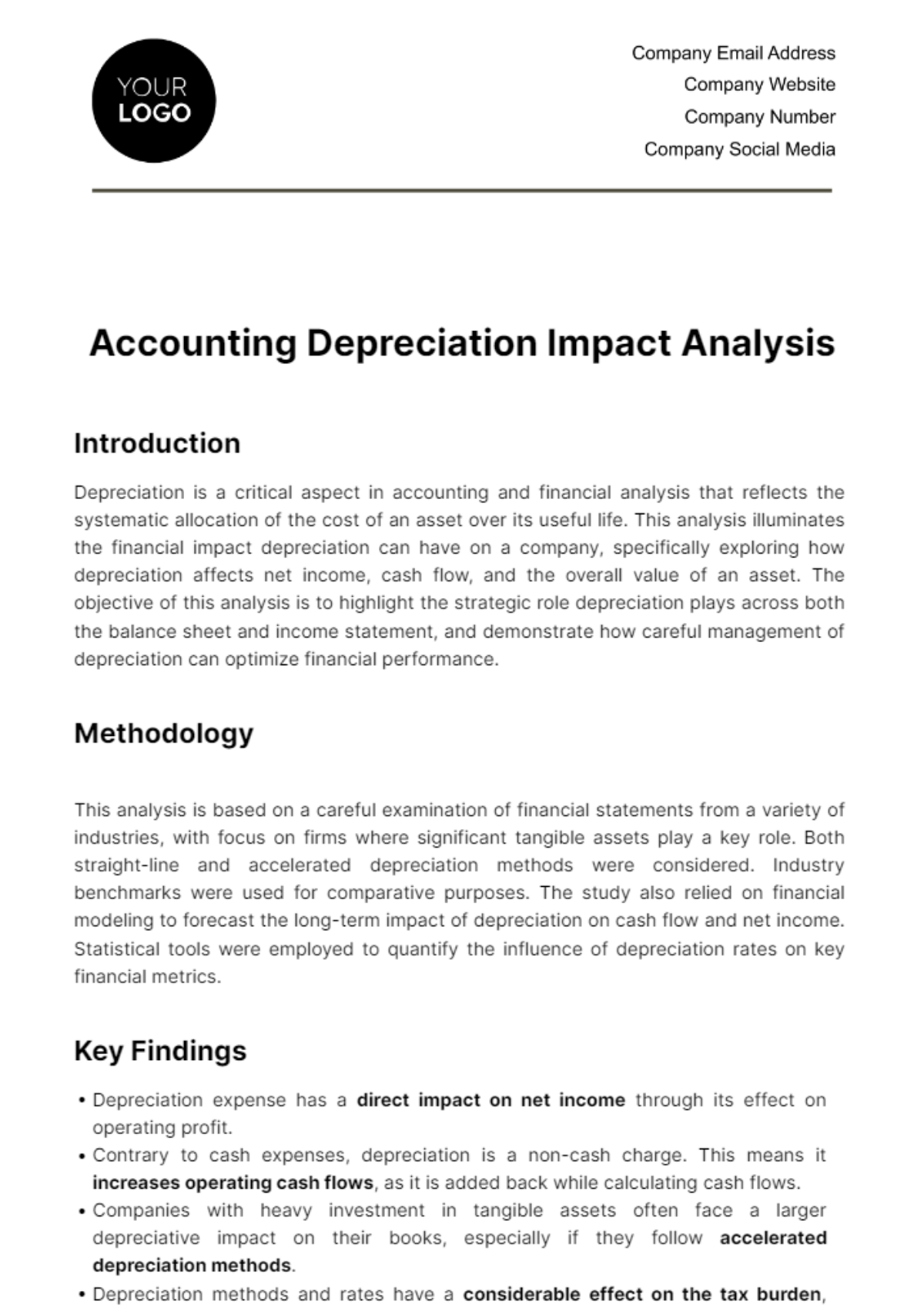
Introduction
Depreciation is a critical aspect in accounting and financial analysis that reflects the systematic allocation of the cost of an asset over its useful life. This analysis illuminates the financial impact depreciation can have on a company, specifically exploring how depreciation affects net income, cash flow, and the overall value of an asset. The objective of this analysis is to highlight the strategic role depreciation plays across both the balance sheet and income statement, and demonstrate how careful management of depreciation can optimize financial performance.
Methodology
This analysis is based on a careful examination of financial statements from a variety of industries, with focus on firms where significant tangible assets play a key role. Both straight-line and accelerated depreciation methods were considered. Industry benchmarks were used for comparative purposes. The study also relied on financial modeling to forecast the long-term impact of depreciation on cash flow and net income. Statistical tools were employed to quantify the influence of depreciation rates on key financial metrics.
Key Findings
Depreciation expense has a direct impact on net income through its effect on operating profit.
Contrary to cash expenses, depreciation is a non-cash charge. This means it increases operating cash flows, as it is added back while calculating cash flows.
Companies with heavy investment in tangible assets often face a larger depreciative impact on their books, especially if they follow accelerated depreciation methods.
Depreciation methods and rates have a considerable effect on the tax burden, given its impact on taxable income.
Insights from the Data
Depreciation Method | Impact on Net Income | Impact on Cash Flows |
|---|---|---|
Straight Line | Steady | Neutral |
Accelerated | Negative in Initial Years | Positive in Initial Years |
Actionable Recommendations
Be more attentive to depreciation accounting choices and their fiscal impact.
Consider leveraging accelerated depreciation methods for robust early-year cash flow.
Estimate and predict depreciation to plan capital budgeting.
Utilize higher depreciation charges to reduce taxable income and potentially lower the tax burden.
Conclusion
This analysis clearly indicates the key role that depreciation plays in accounting and financial management. It directly impacts net income and is a significant factor in a company's cash flow. Not only does depreciation reflect the allocation of an asset's cost over time, but it also plays a strategic role in tax management. Considering the critical effects of depreciation, businesses should be diligent in their choice of depreciation methods and attentive to their implementation in accounting practice. Careful management of depreciation can optimize financial performance and contribute to sustainable growth.
Prepared by [YOUR NAME]
[YOUR COMPANY NAME]
- 100% Customizable, free editor
- Access 1 Million+ Templates, photo’s & graphics
- Download or share as a template
- Click and replace photos, graphics, text, backgrounds
- Resize, crop, AI write & more
- Access advanced editor
Revolutionize your accounting practices with the Accounting Depreciation Impact Analysis template on Template.net. This editable and customizable tool enables you to conduct thorough analyses effortlessly. Tailor it to your specific requirements using our Ai Editor Tool, ensuring precision and relevance. Streamline your depreciation impact assessments with this user-friendly template, enhancing your financial decision-making process.

